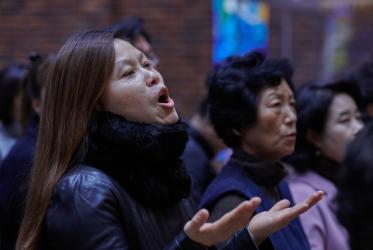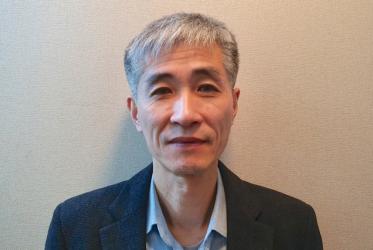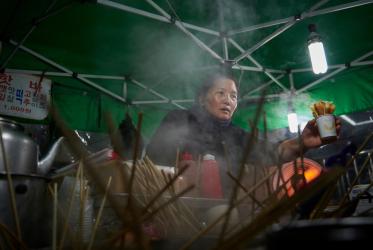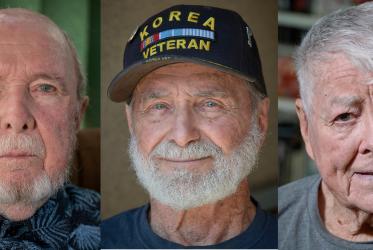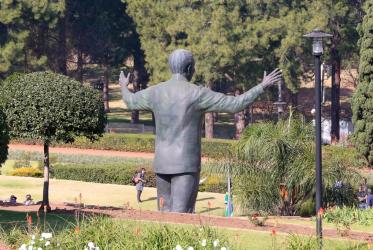Displaying 1 - 20 of 130
WCC leaders recall life-changing experiences from early days
10 February 2022
WCC offers prayer during Japanese peace conference
11 March 2021
Rev. Shin Seung-min: “We want to create hope, not despair”
22 December 2020
South Sudan Church leaders welcome new cabinet
15 March 2020
South Sudan Council of Churches: peace “is a question of the heart”
11 November 2019
Churches in southern Africa stand against violence, xenophobia
10 October 2019
